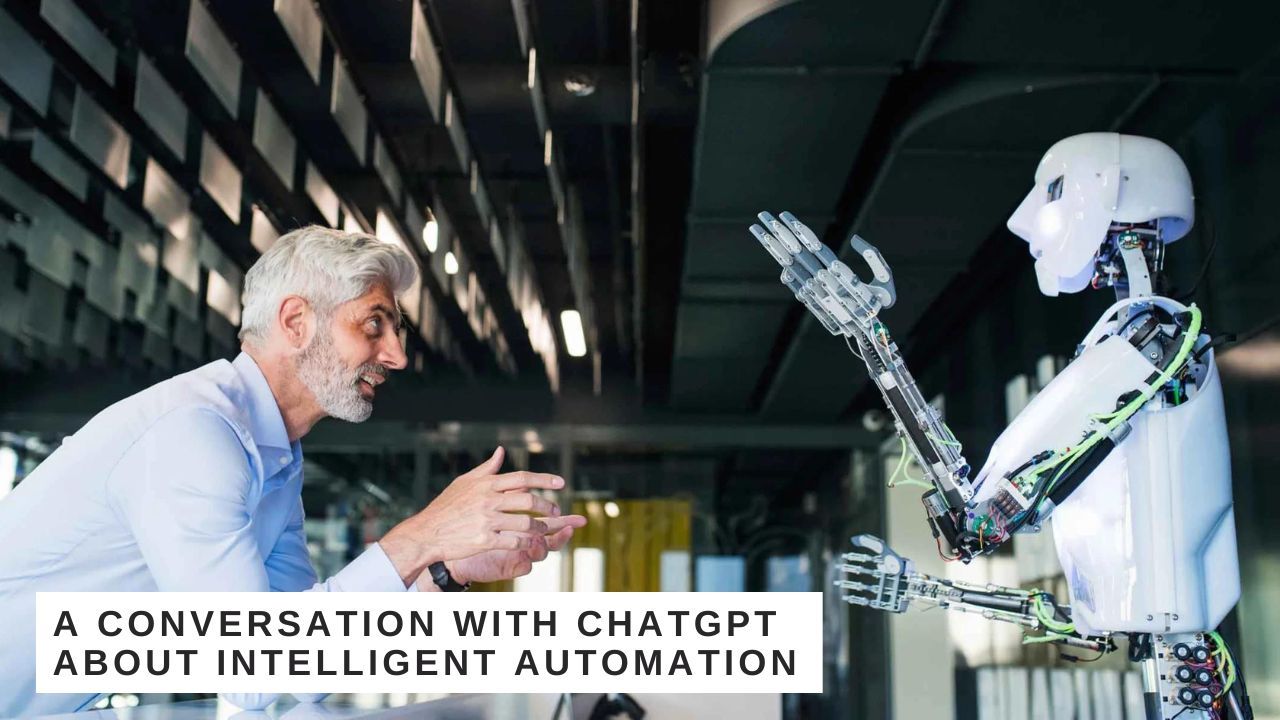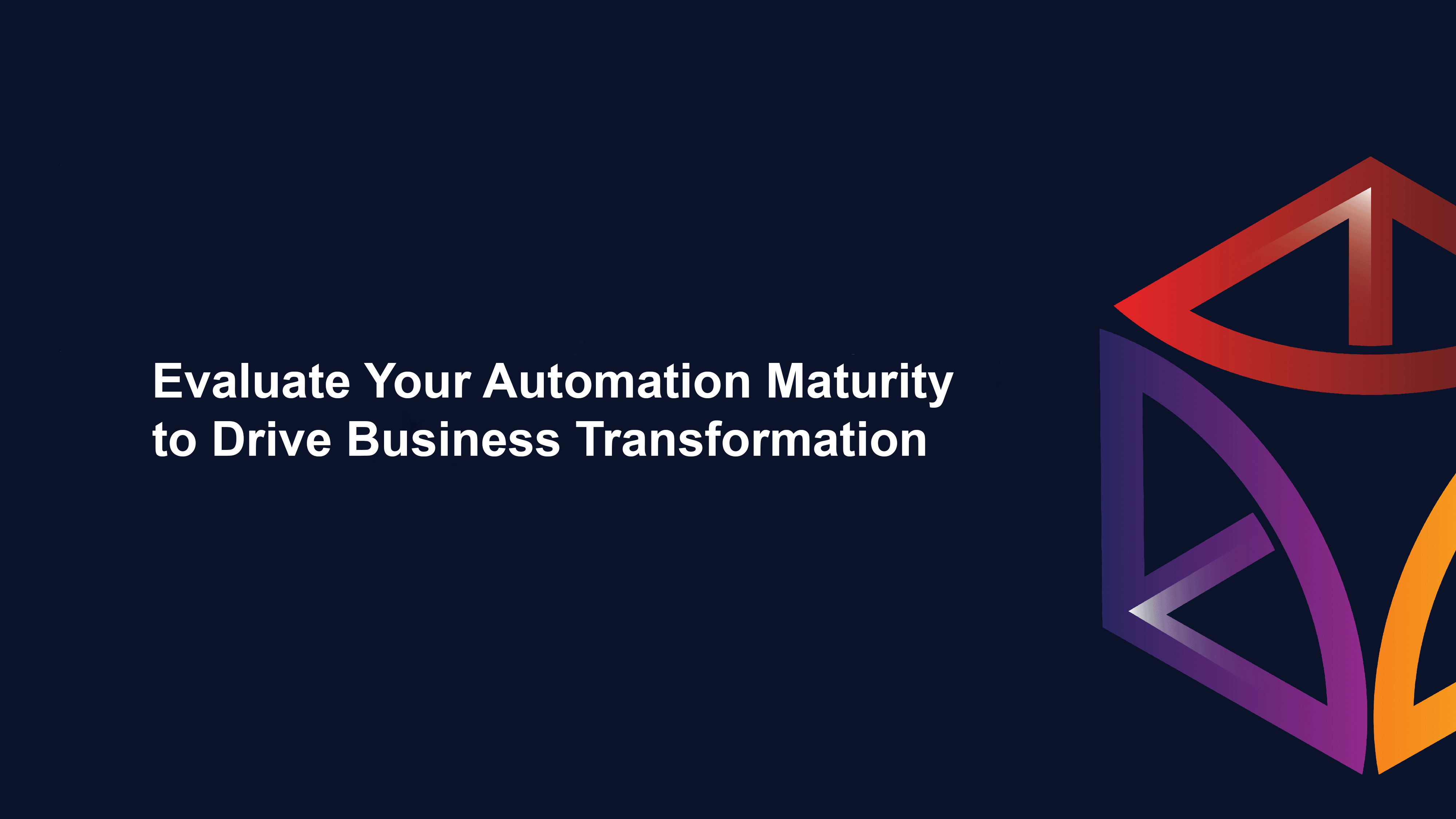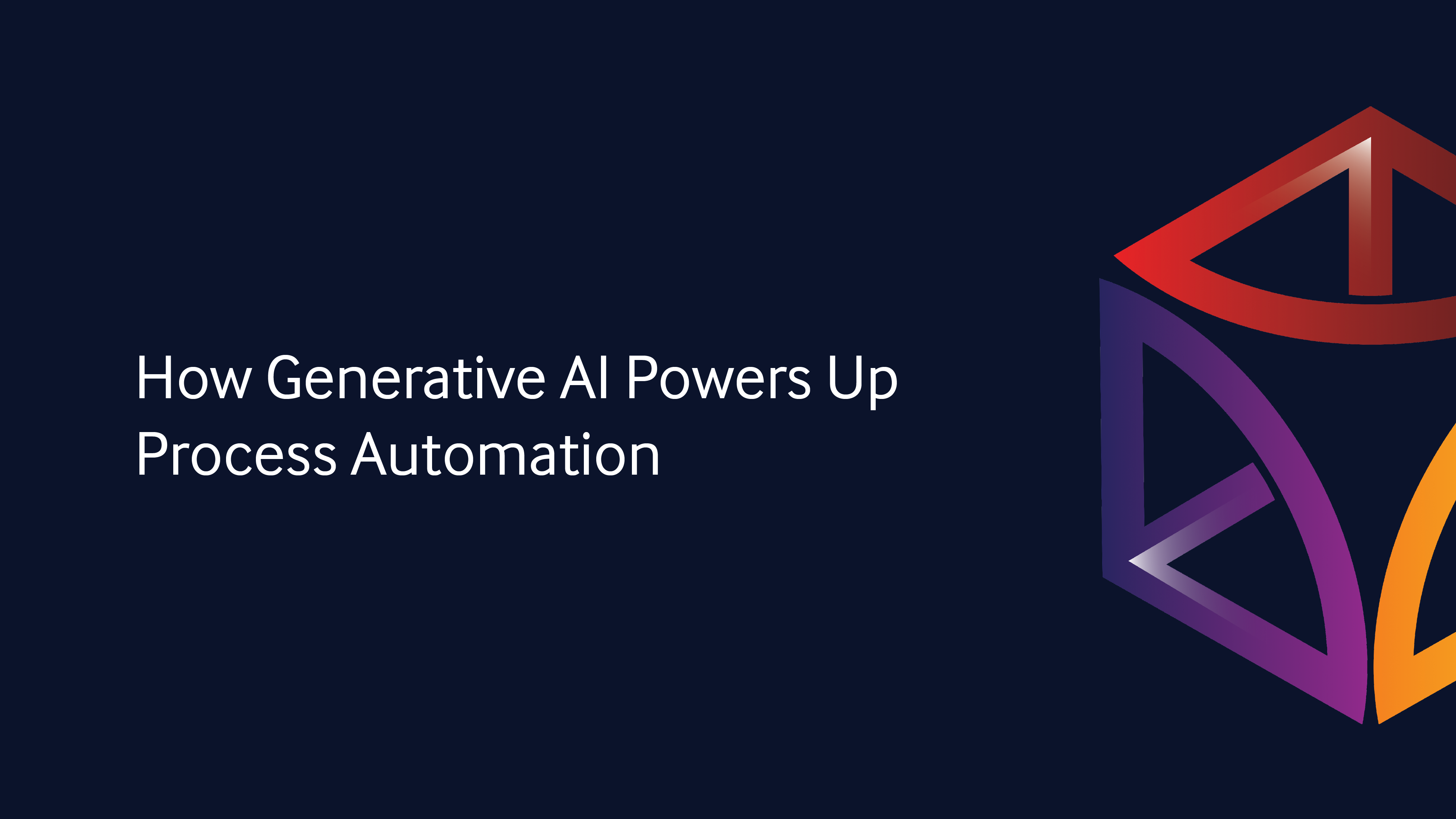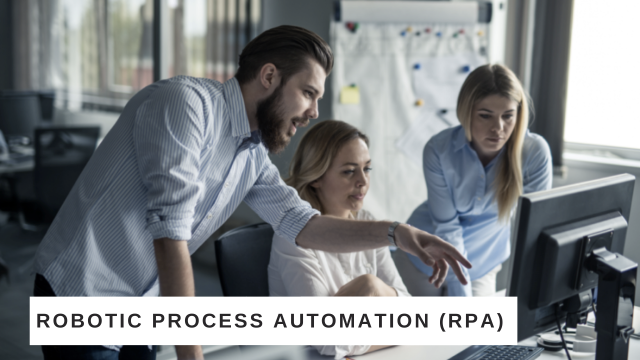What Is Intelligent Automation And How To Make It Work
12 minutes read
Intelligent automation automates non-routine processes and tasks that require some level of thought. Businesses that have embraced digital transformation initiatives that include intelligent automation are enjoying increased efficiency, accelerated time to market, and sufficiently keeping up with their customers' ever-shifting preferences and expectations.

Table of Contents
- What Is Intelligent Automation And How To Make It Work
- What Is Intelligent Automation?
- What Are the Benefits of Intelligent Automation
- 3 Things That Make Intelligent Automation Work
- Intelligent Automation Use Cases
- What Is the Difference Between RPA and Intelligent Automation?
- Getting Started with Intelligent Automation
- Key Takeaways about Intelligent Automation
- FAQ about Intelligent Automation Platform
Long gone are the days when companies would question the need for automation. In today’s business landscape, intelligent automation (IA) is becoming required for enterprises intending to thrive in the marketplace. Digital business leaders have little choice but to focus their attention on delivering both short-term value and sustainable transformation and continuous optimization long term. Through intelligent automation, companies can require workflows to align better the IT strategies they’ve formulated.
For most forward-leaning enterprises, the journey into intelligent automation begins with robotics process automation (RPA). This explains the increased adoption of RPA for many businesses. But businesses that want to become more agile and adept at leveraging real-time data to stay attuned to their customers’ needs must also embrace intelligent automation.
Businesses that have embraced digital transformation initiatives that include intelligent automation are enjoying increased efficiency, accelerated time to market, and sufficiently keep up with the ever-shifting preferences and expectations from their customers. By 2023, the Intelligent Process Automation market worldwide is forecasted to hit $13.75 billion USD, representing a CAGR of 12.9% between 2018 and 2023.
Some industry watchers see IA as the gateway into the fourth industrial revolution. It is driving innovation across insurance, banking, oil and gas, financial services, telecom, logistics, and retail industries as well as across the public sector.
What Is Intelligent Automation?
Many enterprises are now quite familiar with automation concepts, with a big number of them automating manual repeatable processes to enhance efficiency. The intelligent aspect of automation is brought about by artificial intelligence, robotics, machine learning, and other technologies capable of independently carrying out human-like actions, interpreting data, and making decisions with zero direct human assistance or interference.
So, we can define intelligent automation as the combining of smart technologies that have automated processes such as RPA, AI, optical character recognition (OCR), data analytics, process mining, and intelligent character recognition (ICR), creating end-to-end business processes capable of thinking, learning, and adapting on their own towards delivering faster, better, and more cost-effective business solutions. Intelligent automation is sometimes called hyper-automation or intelligent process automation (IPA).
Simply put, intelligent automation automates non-routine processes and tasks that require some level of thought.
What Are the Benefits of Intelligent Automation
The following are some of the main benefits of intelligent business process automation for the enterprise:
Increasing the speed of problem identification and resolution
Intelligent automation reduces business processes’ cycle time by eliminating many speed bumps that human intervention brings into those processes. Handling periods often fall 50% or more resulting in streamlined execution and improved efficiency. Client issues are identified faster and resolved quickly, resulting in improved customer retention and overall customer satisfaction.
Reducing costs by improving productivity
One of the main areas of impact for intelligent automation is the reduction of the need to outsource. There was a time when outsourcing was seen as the most effective technique in managing costs while maintaining high-level outputs. That has changed. Now, IA is expected to make this process practically obsolete.
Why? It’s more practical and allows businesses to move tasks back in-house to be handled electronically. As a result, businesses will enjoy enhanced security and fewer errors in their process. What’s more, IA will help them cut as much as 40% of their costs. The cost savings will be largely driven by the productivity and efficiency of software robots capable of replacing some full-time employees.
Improve the quality of customer experience
From reducing the call-handling time to eliminating errors and input duplication, IA leverages technologies that improve the quality of an enterprise’s customer experience. By using virtual agents like conversational bots and chatbots, businesses can get more of their customers' issues resolved without the need to allocate their limited human resources to those tasks. IA need not altogether replace humans in customer query desks, but it helps a great deal when used to supplement the services the human reps are already providing.

3 Things That Make Intelligent Automation Work
Today’s IA solutions include no-code automation that allows enterprises to deploy IA-powered applications with limited web development resources. Already, companies like Microsoft, ServiceNow, Pega, Appian, and Amazon are working on no-code technologies that will help businesses deploy intelligent automation without writing code.
No-code and low-code technologies will allow enterprises with little web development expertise to participate in web development, dedicating the few development resources they have to more specialized and advanced areas. Gartner reports that by 2024, low-code platforms will account for more than 65% of all application development.
Intelligent automation includes data intelligence that reduces errors, reveals areas to make corrections, and eliminates process hurdles. It is a data process management solution that allows end-to-end automation of document-based business processes, including customer on-boarding, contract analysis, commercial underwriting, mortgage processing, analysis of insurance claims, customer onboarding, financial document analysis, and more.
Using its cognitive intelligence capabilities, IA can understand documents, images, text, and other unstructured data, making it possible for it to make accurate judgments by analyzing the surrounding context. As a data process management tool, therefore, IPA enables businesses to overcome many barriers that have slowed the adoption of AI solutions.
Artificial intelligence is the real driver for forward-looking intelligent automation solutions. AI-powered intelligent automation will be critical to businesses’ ability to compete in the coming years. Intelligent automation is becoming a central part of business operations. Business organizations that want to thrive well into the future will have to incorporate artificial intelligence into their processes because failure to do so will deal a blow to their long-term health.
AI technologies, including machine learning and natural language processing, are the big drivers of intelligent automation. They make it possible for IPA to understand the contexts around unstructured data in a similar manner that a human would.

Intelligent Automation Use Cases
The great computing capacity and advanced techniques fronted by intelligent automation have created a new generation of software and hardware robots capable of performing both physical and cognitive tasks. In addition to processing huge datasets, intelligent automation systems analyze data to check for its correctness, spot any inconsistencies, learn through that process and adapt to change while making decisions.
As a result, the use cases of intelligent automation have grown beyond the common business processes like HR, marketing, and payroll management. Now, whole industries are leveraging IA to improve their business value. The following are some of its most notable industry use cases:
Intelligent automation in manufacturing
The impact of intelligent automation in manufacturing has been phenomenal: it has already triggered two industrial revolutions: Industry 4.0 and Industry 5.0. These revolutions can be attributed to recent advancements in technologies such as IoT, AI, ML, 3D printing, VR, AR, nanotechnology, autonomous vehicles, robotics, quantum computing, energy storage, biotechnology, and additive manufacturing.
In manufacturing, digital and physical robots, powered by IA, are performing many operations that were previously a reserve for human operators, including:
- Performing almost all processes on the factory floor
- Processing huge datasets to streamline procurement, ordering, appointment scheduling, etc.
- Preventing outage and downtimes by proactively fixing aberrations through predictive analytics
- Detailed quality inspection that humans can’t match
Intelligent automation in insurance
The insurance companies that are most effective are those with well-established and orchestrated processes that include payment calculation, policy management, regulatory compliance, and claim and appraisal processing. Intelligent automation fits perfectly in these processes. It also helps insurance agencies address issues like poor time effectiveness, poor process scalability, and manual entry of huge datasets. According to McKinsey, automation will reduce claims journey costs by as much as 30%.
Intelligent automation in oil & gas
Through digital transformation, the oil and gas industry could add $1.6 trillion USD to its current value by 2025. One of the driving forces of this transformation will be intelligent automation. Some of the benefits of incorporating IA in the Oil & Gas industry include:
- Offers quicker ways of planning and zoning complex well sites
- Minimizes unplanned downtimes of heavy equipment
- Standardizes the operating procedures of field operators
- Monitors barrel pricing fluctuations round the clock and adjust operations as needed
- Predicts problems in time, ensuring they don’t spin out of control
- Manages the flow and mitigates the ebbs of labor availability
- Fosters interdepartmental collaboration
- Generates production forecasts that are more accurate
- Improves worker safety
Intelligence automation in healthcare
RPA has been extensively implemented in the healthcare industry to streamline repetitive processes. Now, IA is going a step further pushing healthcare into a space where evidence-based care takes the center stage. Instead of making decisions based on a doctor’s knowledge and experience alone, decisions can be based on retrieved figures and facts. As a result:
- Personalized treatment now includes more reliable diagnoses accounting for more symptoms and secondary conditions.
- Predictive diagnosing becomes possible because AI can notice precursory symptoms that humans are likely to miss or overlook.
- Surgical operations by AI-powered robots become possible
- More accurate analysis of medical images lowers the risk of misinterpretation
- Time-intensive nursing tasks can be taken over by AI-powered robots
What Is the Difference Between RPA and Intelligent Automation?
While some people do use RPA and intelligent automation interchangeably sometimes, they’re not exactly the same. Therefore, when considering intelligent automation vs RPA, it’s important to understand the main differences. They can be boiled down to two:
RPA bots for task automation
RPA uses surface-level and user-interface features to create code scripts that automate predictable, routine tasks. The bots do specific tasks over and over again through a structured, well-defined set of rules. As a result, they can only accomplish what they’ve been programmed to do; they fail when faced with the gray areas that require intelligence and flexibility.
Intelligent automation acts on insights
Unlike RPA that revolves around several bots each performing a singular task, intelligent automation leverages ML, AI, and other automation technologies to perform more complex tasks that require intelligent insight. IA automates complex and large workflows that would typically be handled by humans. The result is often a higher degree of reliability as well as lower-tech debt.
Getting Started with Intelligent Automation
You’ve learned the difference that intelligent automation would make for your business, but how would you start leveraging the opportunities that it presents?
Start with process discovery
Your journey to incorporating intelligent automation should begin with process discovery. This is the assortment of techniques and technologies to identify how certain people implement their business processes. Process discovery improves the efficiency of business processes by leveraging AI and ML technologies to show enterprises the steps they could take towards achieving this goal.
Access and integrate the data sources
Data integration is an important step towards incorporating intelligent automation into your business processes. It refers to the bringing together of data from an array of sources and into a unified, single view. It makes it possible for analytics tools to deliver actionable and effective business intelligence.
Apply analytics and insights
Through IA, businesses can process complex and large amounts of data without the risks associated with human errors. AI and ML algorithms can efficiently track, monitor, and collect these real-time data to provide in-depth, better quality insights with no errors. As a result, companies can more accurately predict different possible scenarios in the market and make better business decisions.
Key Takeaways about Intelligent Automation
- Intelligent automation brings together integration and AI — IA incorporates artificial intelligence into systems to make individual applications interoperable with other programs and components to create an intelligent system capable of making human-like decisions.
- No code solutions are required to use at scale — Business organizations that want to scale up the use of intelligent automation must embrace no-code solutions like Put It Forward’s No Code Integration Platform. The end-to-end data platform allows you to work with data as you wish without writing any code, bridging the gaps that often exist across point technologies such as cloud infrastructure, databases, and CRM systems.
- Intelligent automation enables scale — With IA, business enterprises can scale their operations while maintaining efficiency and quality of output. Companies can leverage the seamless interoperability of IA platforms to unlock scale.
Put It Forward’s no-code data platform is designed for professionals and developers looking for a modern IA-powered data management platform that connects multiple data sources and technologies to gain efficiencies and improve prediction analytics. Reach out to us today and get a custom demo of our easy-to-use analytics platform.

Elsa Petterson
Partner success manager @ Put It Forward
FAQ about Intelligent Automation Platform
The intelligent automation platform by Put It Forward is advanced software that allows organizations to automate their data operations and processes with no-code orchestration combined with ai/ml.
The solution for intelligent automation makes it possible to get rid of routine manual processes and tasks that require high costs and human efforts.
The outstanding benefits of intelligent process automation include:
- Automated end-to-end business workflows
- Executed processes with no human errors
- Reduced business and operational costs
- Scalability for your business
- Secure data infrastructure with full control
- Effective collaboration between multiple departments
Enhanced customer experience and purchase process.
The main purpose of intelligent process automation is to help organizations scale their operations and processes that directly impact their business growth and revenue.
This allows organizations of all sizes to automate business processes in order to connect multiple data sources and systems, get rid of repetitive tasks, leverage team productivity, and reduce costs.










